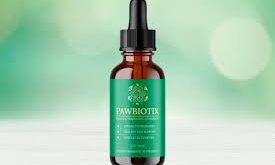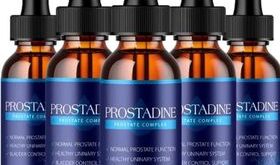Acne is a major issue for teenagers as well as numerous adults. Acne that is hormonal can trigger breakouts at any time that your hormones change. Luckily, as per experts in the field Healthy Remedies hormonal acne typically is a good candidate for treatment and you could begin to see clearer skin after a few days. Let’s learn how to treat hormonal acne.
How do I know if I have Hormonal Acne?
When you experience hormonal changes and acne, it can become more severe. It is most evident in puberty, but it could also happen in menopausal and perimenopausal times. A lot of women notice hormonal changes in their menstrual cycles trigger breakouts from acne. Acne breakouts can be triggered by the increase in testosterone that both women and men have in different quantities. For women, testosterone-related hormones as well as estrogen levels alter with the progression of your cycle.
How to treat hormonal Acne
Hormonal acne occurs due to hormonal changes, but it is caused by the same factors like other forms of acne. It happens when pores get blocked by oil and other debris. The pores turn into abacus-friendly environments. The bacteria that are trapped cause irritation and redness.
Home-based acne treatments
Certain hormonal acne types respond to treatments that you can apply at home. Your dermatologist might recommend treatments for acne such as:
⦁ Benzoyl peroxide
⦁ Retinoids (such as Differin gel)
⦁ Cleansing agent for salicylic acid
⦁ Products that block pore-clogging such as hair oils and skin oils
⦁ Prescription Medical Treatment
If you’re not seeing outcomes after following your skin care regimen for a couple of weeks, you might need more assistance. A dermatologist can recommend hormonal acne treatments. These could include oral contraceptives to balance your hormones as well as the medicine called spironolactone. These may also contain the use of oral retinoid or antibiotics.
What is the best time to see a dermatologist for hormonal Acne?
It is recommended to see a dermatologist if your pimple isn’t responding to treatments at home or is leaving marks and marks, or is painful. Consult a dermatologist if you follow a consistent routine for a period of time without any outcomes. If hormonal acne is not treated, it may cause discomfort, inflammation and acne scars that are difficult to treat. Dermatologists have a wealth of experience controlling acne and helping you achieve more clear skin.
Are there side effects to the Hormonal Acne Treatment?
Certain acne treatments can have side effects that you need to be aware of. Topical or oral retinoid treatments cause your skin to be extremely sensitive to sunlight. If you’re taking an oral retinoid, antibiotic or other then you should apply sun protection for the entire body and not just for your face. If an oral or topical treatment is drying your skin Your dermatologist might recommend changing the dosage.
What can I do to treat my hormonal Acne Scars?
When your skin tends to be a bit more intense and inflamed you could end up suffering from acne marks. They are usually carved into the skin, and may be difficult to cover. If you’re looking to remove acne-related scars, dermatologists usually recommend laser treatments. They can smooth the skin and trigger collagen production.
Conclusion
Hormonal acne can be difficult to manage, but the right treatment approach can lead to clearer and healthier skin. Consulting a dermatologist and creating an individual plan are the first steps toward taking back control over your condition and seeing long-term results. Addressing root causes along with medical interventions combined with proper skin care practices and healthy lifestyle choices will allow for the greatest chance at success in managing the condition and lasting change for you and your skin.
Write for us: Submit guest post | Fashion | Real estate | Home | Insurance
 Lifeyet News Lifeyet News
Lifeyet News Lifeyet News





